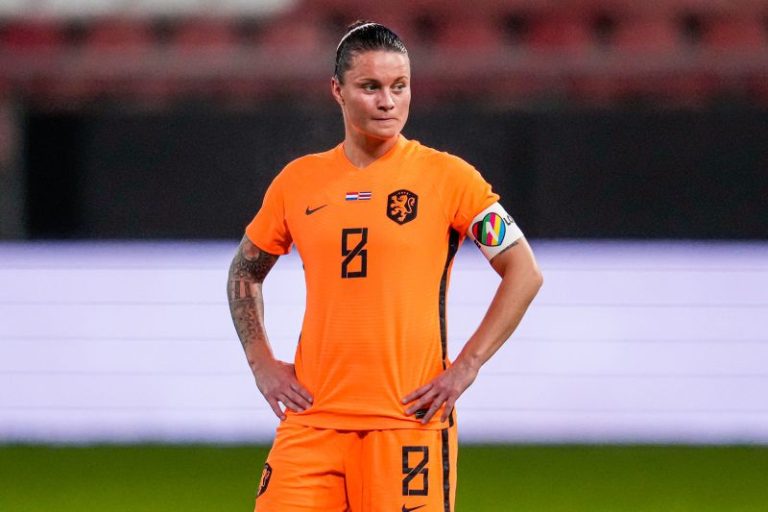World soccer governing body FIFA will allow a variety of different armbands that highlight “a range of social causes” to be worn at the upcoming Women’s World Cup in Australia and New Zealand, the organization said Friday.
“FIFA, in partnership with several United Nations agencies, will use the FIFA Women’s World Cup Australia & New Zealand 2023 to highlight a range of social causes, selected following extensive consultation with stakeholders including players and the 32 participating member associations,” FIFA said in a statement.
Team captains will be allowed to wear an armband around eight different social causes, including gender equality, inclusion and peace, during the tournament, which FIFA says will reach an “estimated audience of over two billion people around the world.”
“Football unites the world and our global events, such as the FIFA Women’s World Cup, have a unique power to bring people together and provide joy, excitement and passion,” said FIFA President Gianni Infantino.
“But football does even more than that – it can shine the spotlight on very important causes in our society. After some very open talks with stakeholders, including member associations and players, we have decided to highlight a series of social causes – from inclusion to gender equality, from peace to ending hunger, from education to tackling domestic violence – during all 64 matches at the FIFA Women’s World Cup.”
FIFA said that team captains will have three options: “They can wear the ‘Football Unites the World’ armband for the entire tournament; an armband corresponding to the theme of their choice for the entire tournament; or the armband corresponding to the theme of the specific matchday.”
There will be “eight specific messages” during the tournament that fall under FIFA’s global campaign titled “Football Unites the World,” which are:
Unite for Inclusion – in partnership with UN Human Rights
Unite for Indigenous Peoples – in partnership with UN Human Rights
Unite for Gender Equality – in partnership with UN Women
Unite for Peace – in partnership with UNHCR, the UN Refugee Agency
Unite for Education for All – in partnership with the UN Educational, Scientific and Cultural Organization (UNESCO)
Unite for Zero Hunger – in partnership with the UN World Food Programme
Unite for Ending Violence Against Women – in partnership with UN Women
Football is Joy, Peace, Love, Hope & Passion – in partnership with the World Health Organization (WHO)
At the World Cup in Qatar in 2022 the captains of several men’s European teams did not wear “OneLove” armbands due to the danger of receiving yellow cards.
Several European teams were set to participate in the “OneLove” campaign to promote inclusion and oppose discrimination, but those countries were prevented by FIFA from doing so.
In a joint statement at the time, they said they had been told by the governing body that any “breaches of kit regulations” would result in on-field sanctions for the players.
The armbands, which featured a heart striped in different colors, became the center of huge controversy at the tournament, despite standing against all forms of discrimination – including solidarity with people of different genders and sexual identities.
In the absence of players not wearing the armbands, politicians watching their countries in Qatar – including Belgian Foreign Affairs Minister Hadja Lahbib and German Interior Minister Nancy Faeser – had them on display while sitting close to Infantino.
There is no explicit mention of LGBTQ rights in Women’s World Cup armbands, beyond the “themes” of “gender equality” and “inclusion.”
The Women’s World Cup is scheduled to be played from July 20 to August 20 with the opening game taking place in Auckland when co-hosts New Zealand play Norway.

